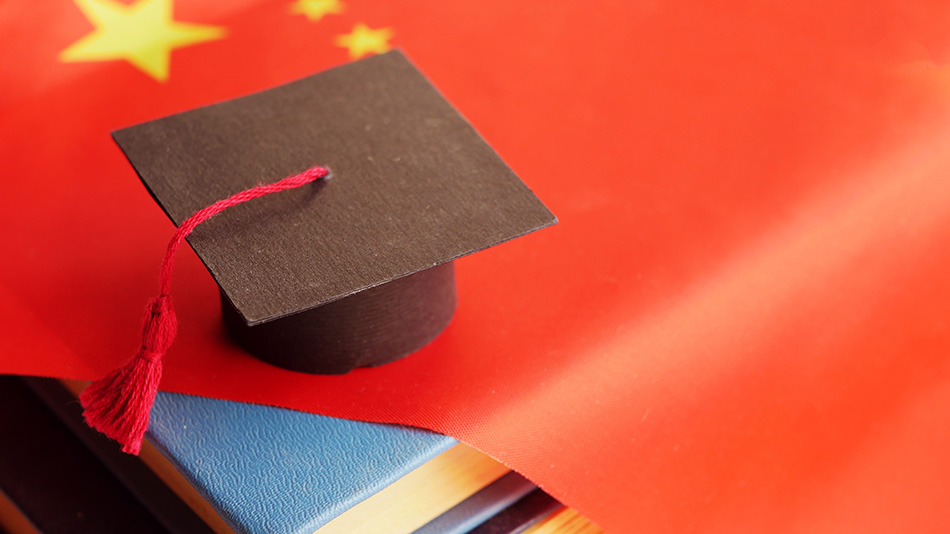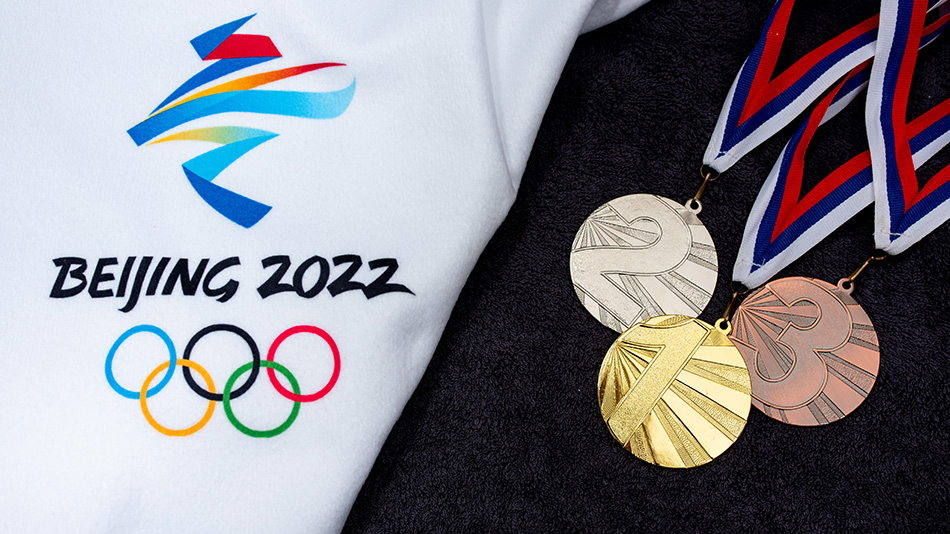China invests millions of dollars each year in the development of competitive sports to help top athletes gain better results in world-level competitions. However, for the majority of players who have retired without ever making it to the top tier, how will they back to normal life?
Tianyi Zheng, a hurdler who retired from the Hebei track and field team four years ago, made a video call to one of his former teammates last year. On the screen she was with her child, who was eating a piece of green bean cake. The child was crying while eating: “I haven’t eaten it in a year ……”
That simple bean cake was the child’s hard-earned reward. Zheng’s teammate and her husband, both former athletes in the Hebei athletes team, did not have a high level of education and were helpless to do anything about their child’s studies, so when their child managed to get 60 points in his English exam, they bought him a piece of precious bean cake as a gift.
Seeing this scene, Zheng felt an ache in his heart. “Can you imagine that? In this day and age, there are still people who live like this,” Zheng said.
Last year was also the year of the Tokyo Olympics, and Zheng in front of the television was thrilled by the breakthrough performance of Chinese 100m runner Bingtian Su – who reached the Olympic 100m final for the first time in Chinese history.
However, turning off the TV, thinking about the crying child and many stories of his retired teammates that he had heard about recently, Zheng couldn’t help but worry about the future of the Chinese track and field, since “not many people end up with good results.”

Zheng started practising athletics when he was about eight years old. He joined the Hebei track and field team in 2010. In the eight years that followed, he represented the Hebei team in several national competitions, once finishing tenth in the hurdle competition at the National Games. Throughout his career, Zheng had never thought about how to start a completely different life after retirement.
He said: “All I had in mind was to be a fitness coach, a coach of a sports team, a physical education teacher in college or high school,” At that time, he wanted to be a coach and develop better young athletes.
Many athletes are so focused on sport and training from their youth that they are reluctant to leave the sporting industry when they retire. This may be the result of a policy that started 70 years ago in China.
In 1952, in order to quickly achieve results in world-class sporting competitions and improve the international reputation of the newly established China, the leaders decided to follow the example of the Soviet Union and establish a system of centralised training for athletes. From the time teenage athletes entered the professional sports teams, training and competing became their entire life.
Jiahui Liu is a sport shooting athlete from Shaanxi team and she has made the national team when the 2008 Beijing Olympics were held. After retiring, she sometimes misses life in the team. She said: “In the team you only need to focus on one thing – training, the rest of the trifles, food and drink, accommodation, all these are equipped by the team, you don’t need to think about anything other than training.”
“Getting better” is a beacon of light to guide them along the way, without which the trivialities of daily life would be enough to drown them in confusion.
Yang Yang once said: “After I retired, I went from being a ‘champion’ to being a ‘nothing’. I didn’t know where to go to pay my electricity bill, I didn’t know I needed a card until I went to the payment office, and I didn’t know what the password was when I went home to get the card.”
She is a skater who won the 500m short track speed skating title at the 2002 Winter Olympics in Yancheng Lake, becoming China’s first ever Winter Olympic champion. The full devotion to training has brought her great success in terms of competition results, as well as a lack of life experience.
Zhang Hanlan of the Chinese national women’s basketball team is one of the lucky ones. She became an assistant coach of the Shenyang Military Youth Basketball Team straight after retiring , but there are not many athletes like her. According to a study by the Shanghai Sports Institute, less than ten percent of retired athletes eventually becoming a coach.
More than a decade of focus on training has left many athletes unaware of what life is like outside of sport, yet coaching and physical education teacher positions are often in short supply. More athletes have to step into a field that is completely new to them.

Another reason for Zheng to give up becoming a coach or physical education teacher was their modest income.
At the time of retiring, Zheng had several coaching certificates for different sports, which qualified him to find a dream job, and each of his teammates has those certificates.
Zheng said: “In the Hebei track and field team, when we retired we would take exams for several certificates, a coaching certificate, a teacher’s certificate, a ski coach’s certificate and a series of other documents. After the exams there would be a recommendation letter issued by the director of the local sports bureau for you to go into the industry.”
Helping athletes to obtain their qualifications before retiring is a new policy implemented by the General Administration of Sports of China in recent years. In the 1990s, athletes did not receive such assistance when they retired.
In 1986, the shift from a planned economy to a market economy after the reform and opening up of China brought about a major change in the training system: Retired athletes were no longer assigned jobs by the government, but received a lump sum retirement payment and then found their own jobs.
In the period that followed, there were numerous examples of champion athletes retiring poor and being looked down upon for their lack of other skills.
In 2003, the report “Death of a weightlifting champion” published in the Southern Weekend Magazine. It tells the story of Li Cai, who suffered from excessive obesity and years of poverty, dying with less than 400 pounds in his entire savings. This report shocked the Chinese people and eventually evoked a reform of the training system.
The certificates become the basic job security for retired athletes of this era, however, for many athletes, they can only meet the food and clothing.
“Do you know what a ski coach’s job is like? A ski coach is someone who blocks the top of the hill and asks people who come to ski: ‘Do you want a coach? It’s 50 Yuan for one person, 100 Yuan for two.’ If you don’t give it to him, he’ll take you up to the path where it’s particularly easy to fall, and when you fall he’ll say look you need a ski coach. This is one single business, the coach can get 20 Yuan from it, work a month down, you can earn about 250 pounds,” Zheng said.
Zheng has another teammate worked in a ski resort. He worked as a ski coach during the day, as a ticket taker at the disco hall at night, and then a ticket taker at the Jianye Workers’ Culture Hall on Saturdays and Sundays, and also worked as a car park cashier. His monthly income was about 2,300 yuan. A few years later, he was eventually sentenced to prison for theft.
The mother of the crying child and her husband are engaged in sports-related work with these certificates. She is a physical education teacher at a secondary school in Baoding, her husband is a coach of high jump and hurdles at the Baoding Amateur Sports School, and her husband’s mother is a ticket taker at a park. The whole family earn about 650 pounds per month.
Zheng said: “They all sound like they have good jobs, but in reality the income is quite difficult to live on in Baoding, especially when they have a child to raise.”

After hearing these stories from his senior brothers and sisters, Zheng abandoned his plans to train young athletes. At this point, another outcome of China’s sporting system reform, the undergraduate diploma, helped him.
At the beginning of the 21st century, the Chinese government started promoting the integration of sports and education system at all levels, from primary school to university, with each sports school employing teachers from other normal schools and professional athletes being able to enter universities as “high level athletes”.
As a result, getting a university degree was not a difficult task for athletes, but it was a rare that student who actually attended classes.
Yang Li, a Beijing team sport shooting athlete who competed in the 2008 Beijing Olympics in discus shooting and finished fifth, recalls his time at the sports school: “No one really study, we just sat there every day and waited for the teacher to leave class. The teacher who came to our classes knew our situation, so he just taught his class and made sure he finished it, there was no homework or anything like that, and no one cared about academic performance.”
In an atmosphere where competition results are king, young athletes and coaches are not interested in learning. Li said: “When it was almost time for the competition, the coaches would just say to the teacher: ‘Can we not have this class?’ Then it was on to training …… There’s no way for teachers to say no or say students need to stay here for the session.”
Although few athletes actually take their studies seriously, the diploma has changed their embarrassments of being turned away when submitting the CVs. Liu is very grateful for the reform that helps athletes go to university: “In terms of degree, you basically fit in most of companions when you’re looking for a job.”

Zheng ended up becoming a marketing trainer for an insurance company after retiring in 2018, as he spontaneously learned many softwares and writing skills through free time while in the team.
“I learned to make slides, python, PS …… My teammates later said: ‘I really admire you for having studied those things’,” Zheng said. These were just hobbies for him, but gave him the possibility to change careers later on.
Zheng said: “A lot of people who used to train in track and field teams ended up doing all kinds of trades instead of still being able to work in sports field.”
The level of development of the athletics in the Chinese communities couldn’t support them continued work in this field. For other unpopular sports, many athletes also have to find new paths. Yang Li studied two years to prepare for the government staff exam before retiring and eventually becoming a general office worker, also saying goodbye to his brilliant past.
Zheng said: “In the next five or ten years maybe China’s athletics will face a downturn. But I believe in 20 or 30 years when the government invests more money in less mainstream sports and athletes are able to receive adequate salaries at clubs or other places, the future of sports will be much brighter.”
